MercoPress. South Atlantic News Agency
Tag: Livestock
-
Thursday, February 27th 2025 - 13:36 UTC
Argentina lifts restrictions on exporting live cattle

Argentine President Javier Milei's Decree 133/25 ending a 50-year ban on exporting live cattle was published Wednesday in the Official Gazette. The measure had been adopted in 1973 due to supply issues. The Libertarian Government's initiative thus opens new market opportunities for the livestock sector.
-
Wednesday, November 16th 2022 - 10:35 UTC
Paraguay not bowing to global pressure against cattle farming
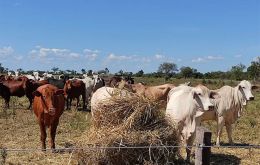
Paraguay's delegation attending the COP27 climate summit at the Egyptian Red Sea resort of Sharm El-Sheikh Tuesday announced that the South American country would not endorse any collective statement curbing livestock farming.
-
Friday, November 5th 2021 - 09:03 UTC
Brazilian livestock producers will have to deal with manure differently to meet Glasgow's goals
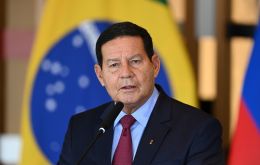
Following Glasgow's declaration whereby the world -Brazil's delegation included- has agreed to reduce the emission of methane gas by 30% by 2030, Brazilian livestock producers have realized they will need to adjust their work so that the country can fulfil such a commitment.
-
Saturday, September 4th 2021 - 08:52 UTC
Export caps keep hurting Argentine livestock producers and consumers alike
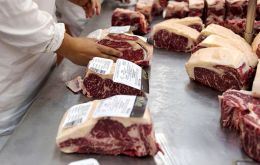
The Argentine Government's policies restricting meat exports have taken their toll on livestock production and slaughter, bringing down domestic consumption as prices went up, just what the measures were supposed to avert, according to a Rosario Stock Exchange (BCR) report released Friday.
-
Thursday, September 19th 2013 - 19:31 UTC
China has become Uruguay’s main market for beef taking 25% of exports
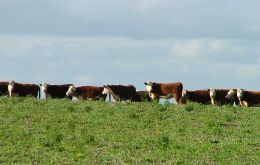
China in just a year has become Uruguay’s main client for beef absorbing 25% of exports equivalent to 190 million dollars in the last agriculture year (July 2012/June 2013). Uruguay exports totalled 390.000 tons according to the latest release from the country’s Meats Institute, INAC.
-
Thursday, January 5th 2012 - 05:28 UTC
Paraguay declares sanitary emergency because of outbreak of FMD
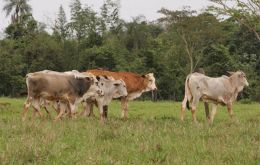
Paraguay declared on Wednesday animal sanitary emergency in the district of San Pedro, 400 kilometres north of the capital Asuncion where this week an outbreak of foot and mouth disease was confirmed in a farm.
-
Monday, June 27th 2011 - 15:21 UTC
Reports of puma attacks on sheep multiplying in Chile
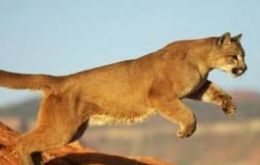
Desperate and decimating. That’s how biologist Agustín Iriarte describes the attitude of livestock farmers and their dwindling number of livestock, as predators take their toll. Chile’s pumas are attacking and killing sheep flocks more than ever.
-
Wednesday, June 15th 2011 - 14:41 UTC
Aquaculture more efficient than livestock production, says WorldFish Centre
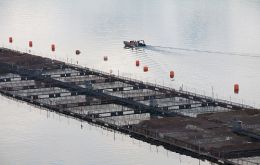
WorldFish Centre and Conservation International (CI) have revealed a comprehensive analysis exploring the environmental impact of the world's major aquaculture production systems and species and gives an unprecedented global assessment of trends and impacts. The results from the two-year study show that aquaculture is more efficient than other forms of animal protein production such as livestock.
-
Saturday, June 4th 2011 - 02:40 UTC
Hard times, even closure for some Uruguayan abattoirs, anticipated Mujica
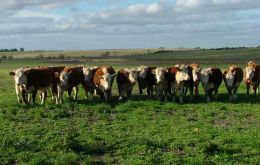
Uruguayan president Jose Mujica warned that several abattoirs will run into deep trouble and might have to close down because of the lack of livestock ready for slaughtering. He also cautioned that “there is not much more the Executive can do”.
-
Wednesday, April 13th 2011 - 18:17 UTC
EU ‘animal well being’ group warns about Mercosur livestock conditions

The Eurogroup for Animals called on the European Union to demand from Mercosur farmers associations and governments the same ‘animal well-being’ requisites and regulations which their European counterparts must comply with.
